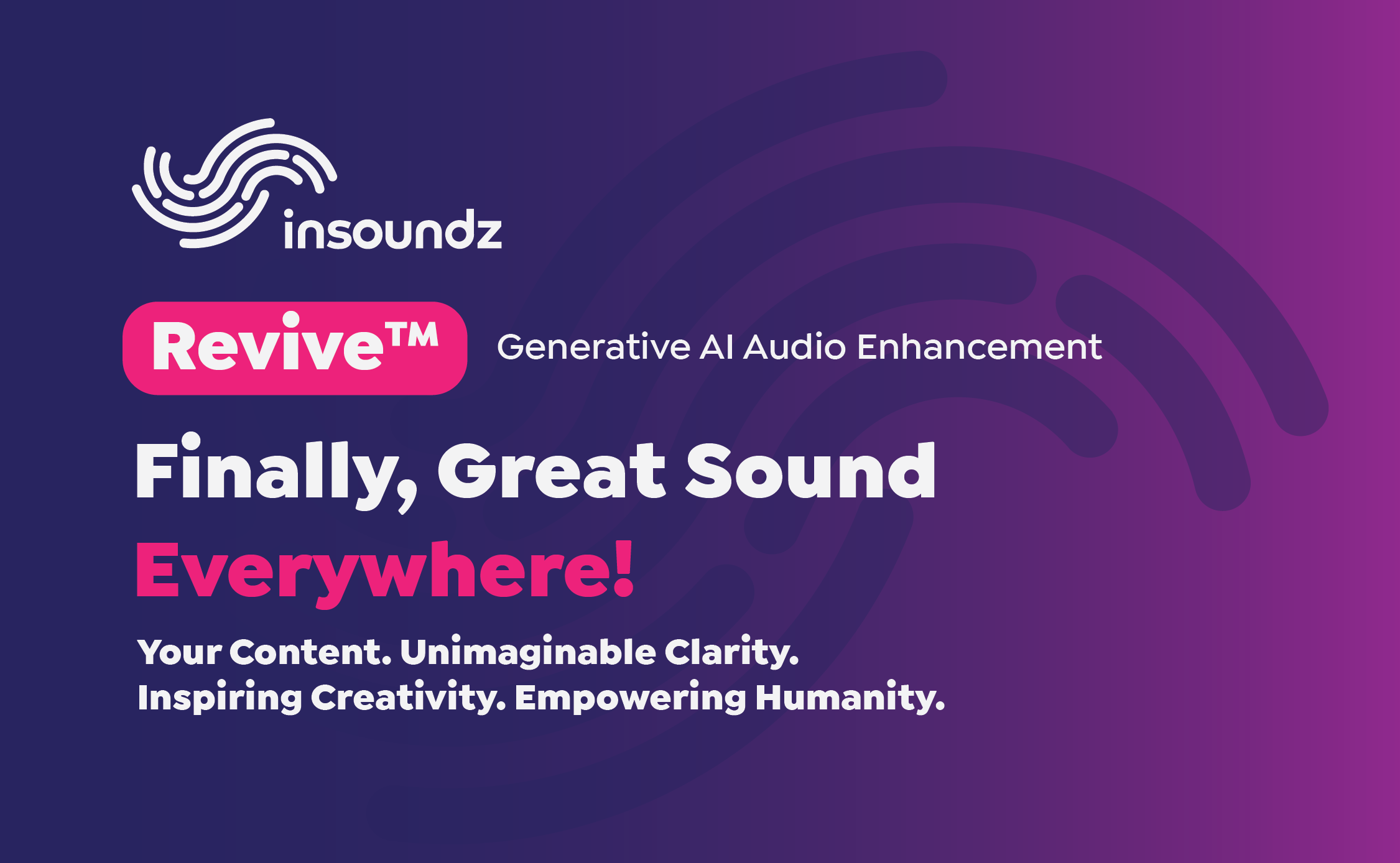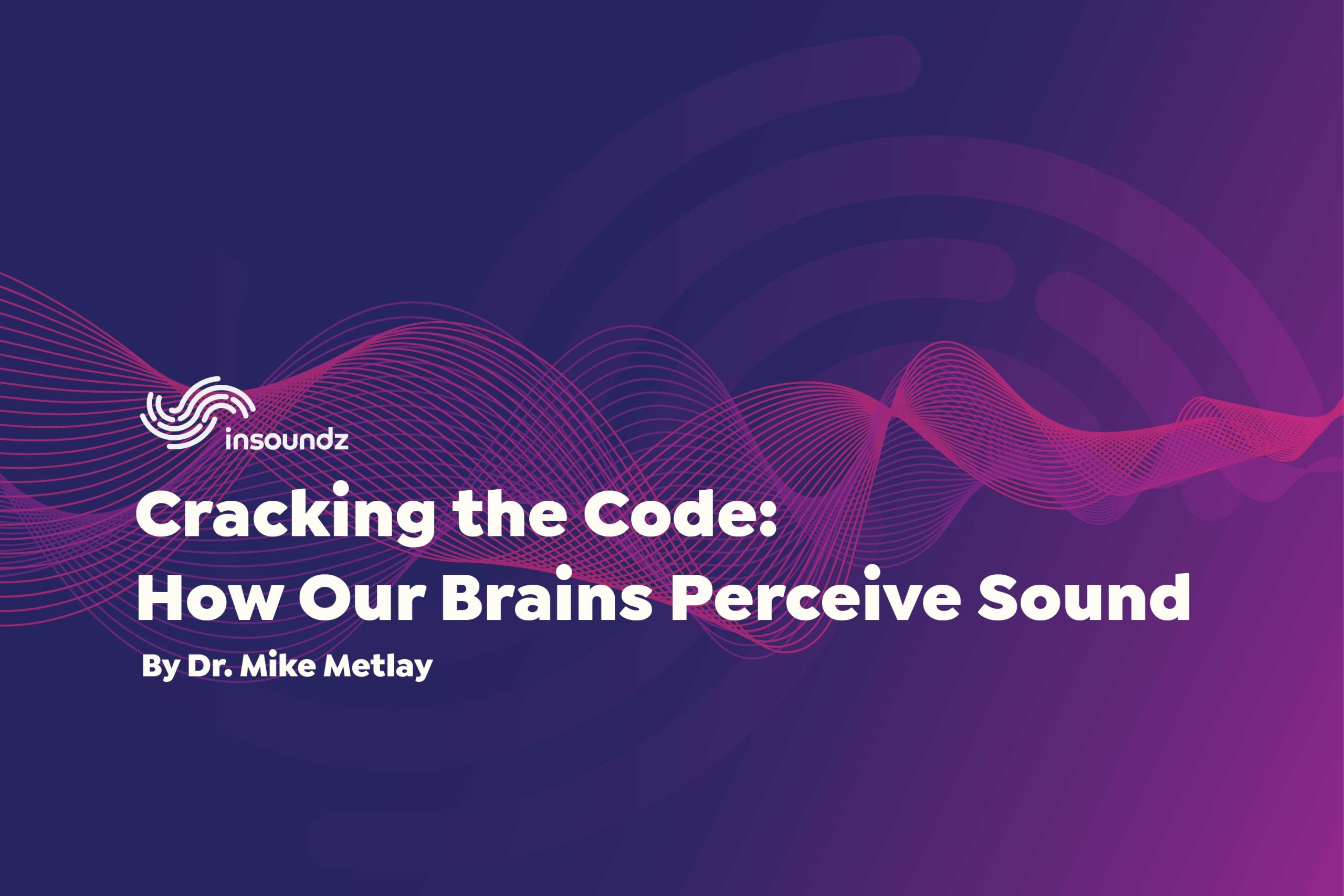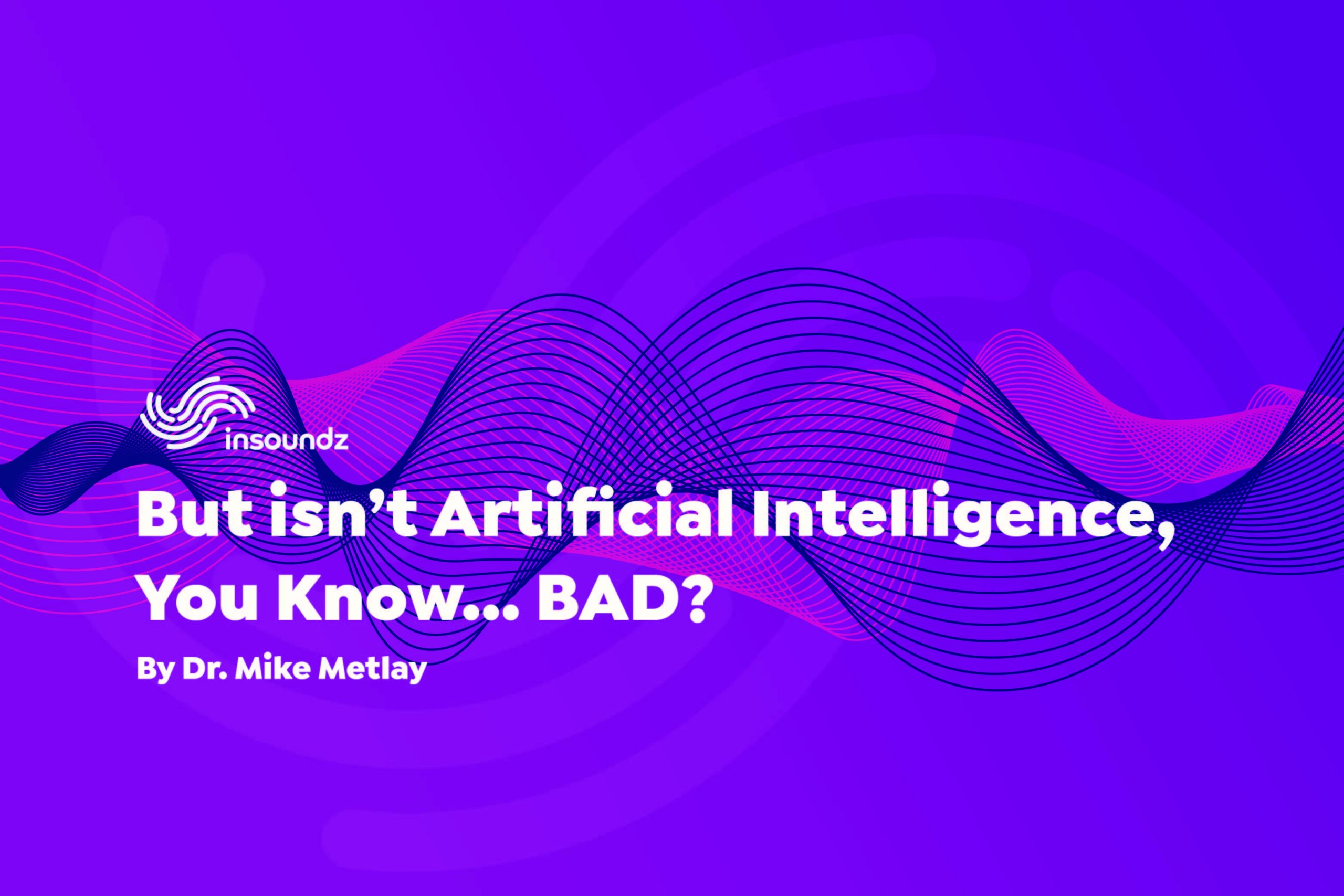When people talk about cleaning up audio for the best possible listening experience, the buzzword that’s thrown around most is intelligibility – out of every hundred words the listener hears, how many do they actually understand? That seems like a fundamental and important quantity… but if you stop and think, it’s actually not all that useful. The problem with intelligibility by itself is that it’s an arbitrary measure of only one part of the hearing process, and it almost entirely ignores the listening process.
So what’s the difference between hearing and listening, and why does it invalidate intelligibility as a defining benchmark? And if we’re not striving for the best intelligibility, what are we striving for?
Working hard (sometimes too hard) for clarity
When you’re listening to something and trying to understand what you’re hearing, a whole lot of brainpower is being expended on turning the sound waves hitting your eardrums into the clearest possible information that you will actually “listen to.” Your brain is kept busy stripping out data you don’t need – or which is actively impeding the listening process.
Normally this happens without you being aware of it, but it’s easy enough to imagine a “thought experiment” that highlights its importance:
1. Imagine talking to someone on the phone, and the signal clarity is among the best you’ve ever heard. The speaker is in a controlled acoustic environment, there’s no background noise, the call doesn’t suffer from clicks or crackles or dropouts, and the voice itself is clear and easy to understand. You’re hearing and understanding 100% of the words – in other words, intelligibility is perfect.
While this is going on, your brain is processing what you’re hearing as you listen. There’s no such thing as perfect audio, so your brain might still be compensating for the tiny speaker in your phone as opposed to hearing the same voice in a room, but that’s a minor thing.
As a result, whatever processing your brain is doing is comparatively easy. This leaves your brain plenty of power to actually think about what the other person is saying, without feeling like you have to strain. In other words, the signal isn’t just intelligible, but it’s (for want of a better word) clear. Not only can you make out all the words, but you can think about them effectively.
what’s the difference between hearing and listening, and why does it invalidate intelligibility as a defining benchmark? And if we’re not striving for the best intelligibility, what are we striving for?
2. Now imagine another phone call, but this time the audio isn’t as pristine. The speaker is inside a building and walking from place to place as they talk, and as their local environment changes from moment to moment – from the warehouse to the hallway to the office – the timbre of their voice is constantly changing. You can still follow what’s going on and understand the speaker just fine; maybe one word in a hundred gets lost. So that’s 99% intelligibility, almost as good as 100%… right?
Maybe that’s true, but now your brain is working harder to fill in the information gaps, trying to turn the rapidly-changing sonic signature of the speaker into something your higher functions can assimilate and process. This isn’t necessarily difficult, but it does take up brainpower you could be using elsewhere – like in actually focusing on the meaning of what you’re hearing. You may be processing what you hear perfectly well, but the call is causing you stress and annoyance – even if you don’t realize it, it’s actually tiring you out. Intelligibility was high, but clarity suffered.
3. Now imagine a third call. This time, the overall sound quality of the call is terrible. The speaker passes through areas where heavy machinery is running, and has to shout to be heard over the noise. In addition, not only is the environment changing, but the cellular reception is fluctuating and the network is experiencing high traffic. Now the noisy audio is full of background hiss and digital artifacts, all punctuated by clicks and pops, if not actual dropouts. Intelligibility drops drastically – let’s say you’re losing a quarter of what’s being said and filling in (or asking the other person to repeat) the rest. That’s 75% intelligibility, which is an unpleasant but not deal-breaking number… at least on paper.
We’ve all had calls like this. You pace the floor in frustration, you stick a finger in the other ear, you shout, and eventually you just say, “This isn’t working, I have to call you back later.” You hang up the phone and sigh in relief, and spend a minute or two trying to process the conversation in peace and quiet. That’s when you realize that while you might have been hearing the words, you weren’t always listening effectively. Your brain was so focused on turning the garbage in your ear into something you could understand, that it wasn’t leaving enough processing power to actually think about the meaning behind the words!
You end up frustrated with the relative lack of success in the call, but beyond that, your ear hurts, maybe you have a headache, you might even be feeling a spike in blood pressure or an accelerated heart rate. That call may have been “75% intelligible,” but in reality you didn’t get much out of the actual content, and your health suffered, if only for a minute or two. There was little or no clarity.
Sounding the “all clear”
When we think about the full process of communication, we’re not just thinking about sending sound waves from a mouth to a set of ears. What we are actually doing is sending a thought process from one brain to another. When you look at the whole picture, it becomes obvious that clarity, rather than simple intelligibility, must be our goal. The entire purpose of Revive is to help give us that clarity.
Revive takes the worst-sounding, most stress-inducing audio, and does all of the brainwork of removing noise, garbled spatial cues, artifacts, and all the other stuff that gets in the way of clear understanding – without forcing your brain to do the work. When you listen to the results of the Revive process, what you hear is information in its purest, most welcoming form, easy to accept and digest. That increases comprehension, and makes listening a truly pleasurable experience – people listen to the message and enjoy what they’re hearing, so they pick up more of your message, quickly and without fatigue. Think about what that means for getting a point across! What would it be like to know that your audience actually takes pleasure from listening to you?
Clarity is a powerful thing, and Revive is designed to turn clarity of ideas into clarity of communication.

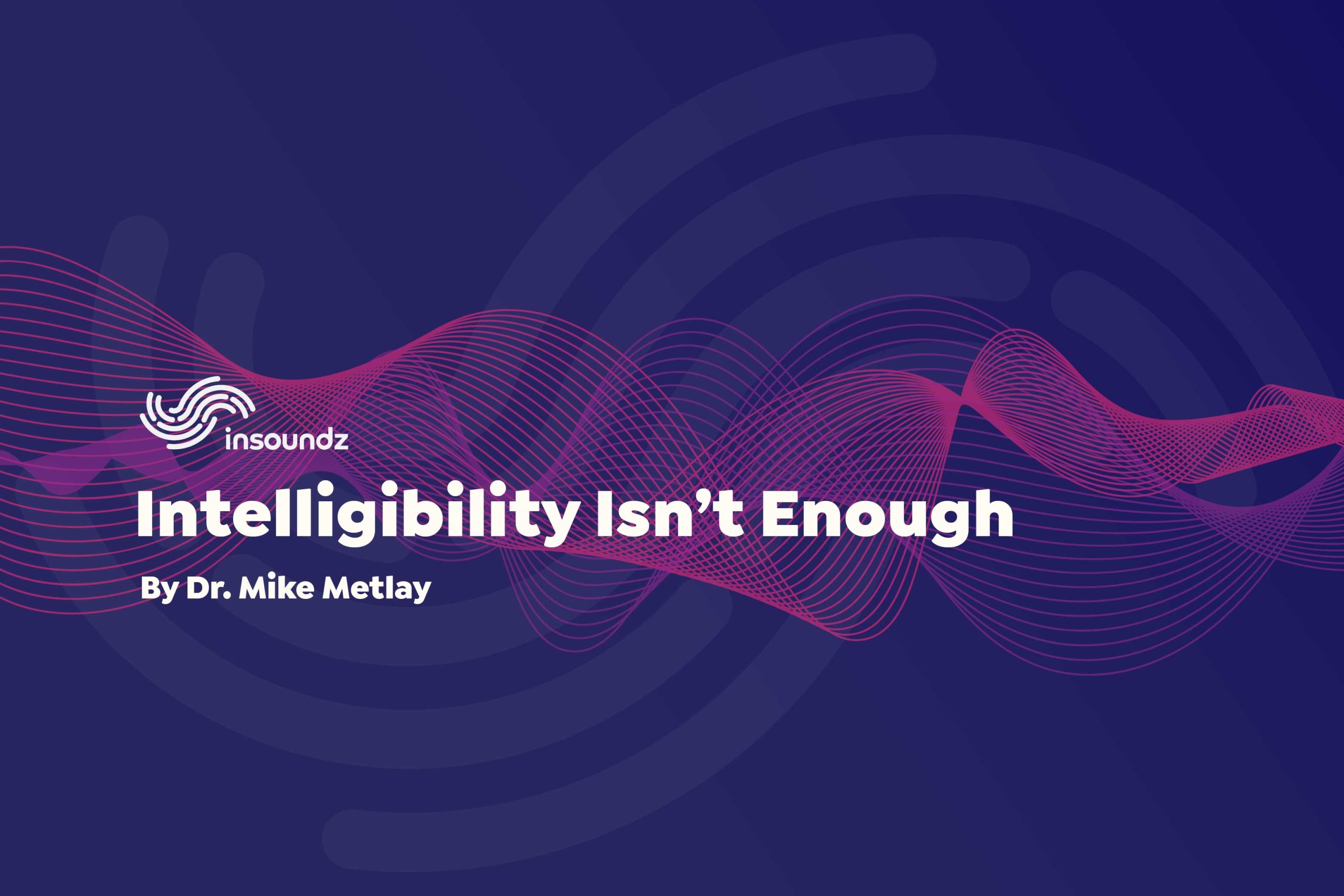
 Dr. Mike Metlay
Dr. Mike Metlay  Aug 18, 2023
Aug 18, 2023 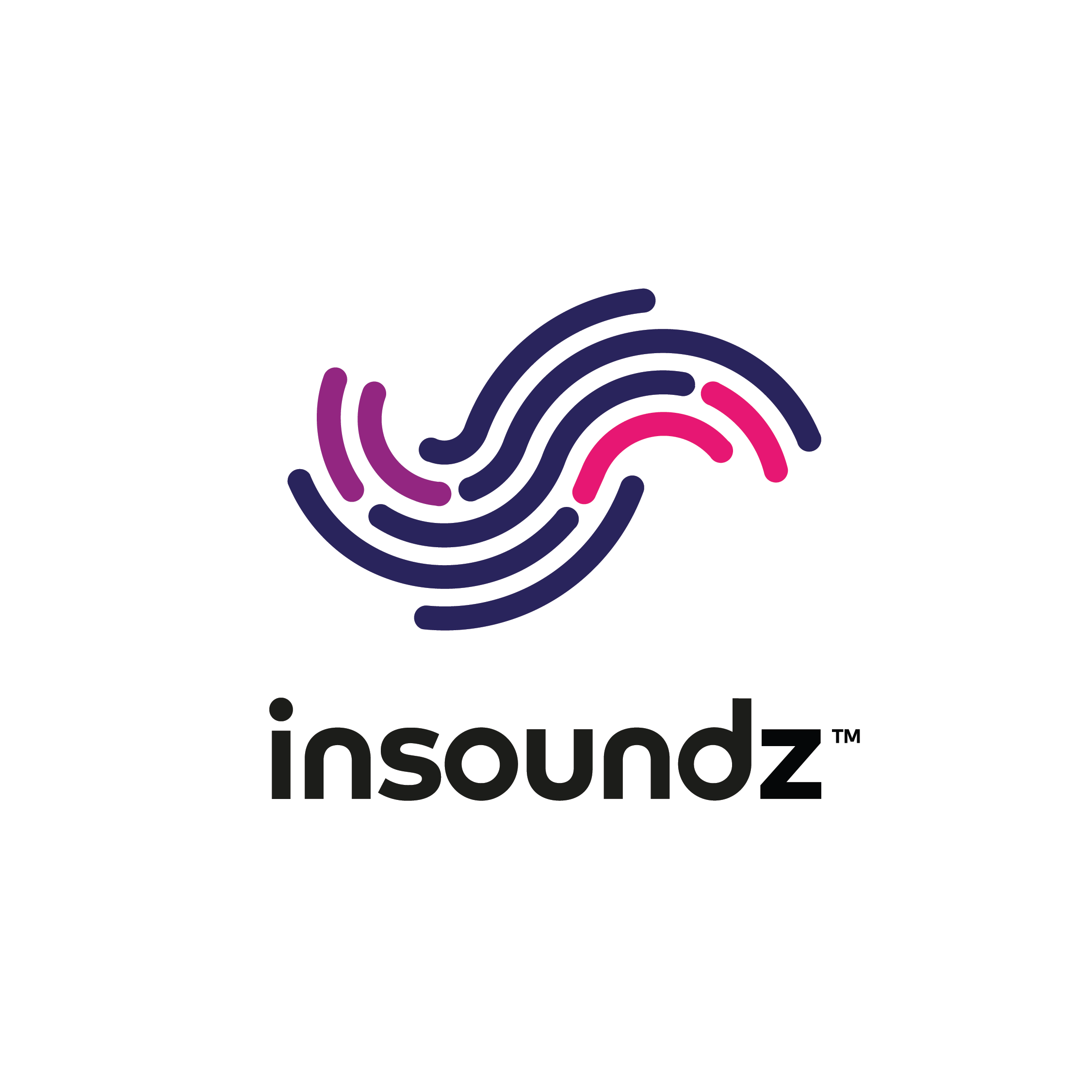

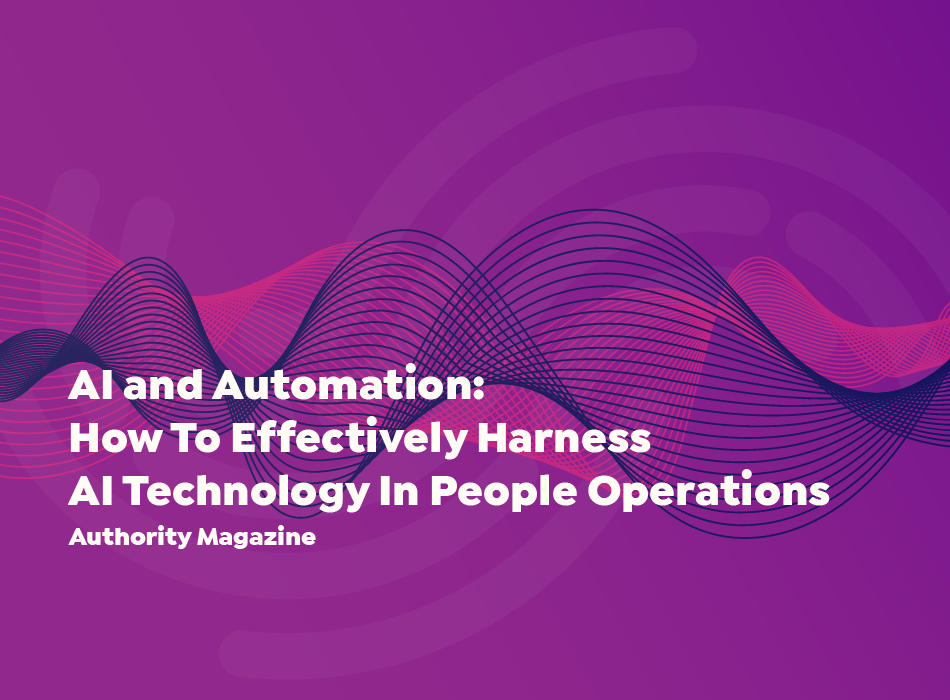
 Authority Magazine
Authority Magazine 